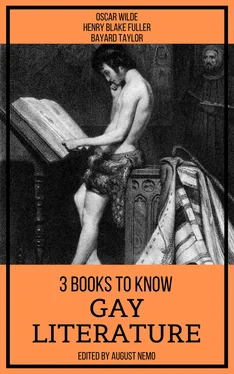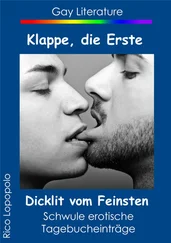“Yes; it was at dear ‘Lohengrin.’ I like Wagner’s music better than anybody’s. It is so loud that one can talk the whole time without other people hearing what one says. That is a great advantage: don’t you think so, Mr. Gray?”
The same nervous staccato laugh broke from her thin lips, and her fingers began to play with a long tortoise-shell paper-knife.
Dorian smiled, and shook his head: “I am afraid I don’t think so, Lady Henry. I never talk during music, at least, during good music. If one hears bad music, it is one’s duty to drown it in conversation.”
“Ah! that is one of Harry’s views, isn’t it, Mr. Gray? I always hear Harry’s views from his friends. It is the only way I get to know of them. But you must not think I don’t like good music. I adore it, but I am afraid of it. It makes me too romantic. I have simply worshipped pianists — two at a time, sometimes, Harry tells me. I don’t know what it is about them. Perhaps it is that they are foreigners. They all are, ain’t they? Even those that are born in England become foreigners after a time, don’t they? It is so clever of them, and such a compliment to art. Makes it quite cosmopolitan, doesn’t it? You have never been to any of my parties, have you, Mr. Gray? You must come. I can’t afford orchids, but I spare no expense in foreigners. They make one’s rooms look so picturesque. But here is Harry! — Harry, I came in to look for you, to ask you something — I forget what it was — and I found Mr. Gray here. We have had such a pleasant chat about music. We have quite the same ideas. No; I think our ideas are quite different. But he has been most pleasant. I am so glad I’ve seen him.”
“I am charmed, my love, quite charmed,” said Lord Henry, elevating his dark crescent-shaped eyebrows and looking at them both with an amused smile. “So sorry I am late, Dorian. I went to look after a piece of old brocade in Wardour Street, and had to bargain for hours for it. Nowadays people know the price of everything, and the value of nothing.”
“I am afraid I must be going,” exclaimed Lady Henry, breaking an awkward silence with her silly sudden laugh. “I have promised to drive with the Duchess. Good-bye, Mr. Gray. Good-bye, Harry. You are dining out, I suppose? So am I. Perhaps I shall see you at Lady Thornbury’s .”
“I daresay, my dear,” said Lord Henry, shutting the door behind her, as, looking like a bird of paradise that had been out all night in the rain, she flitted out of the room, leaving a faint odour of frangipanni. Then he lit a cigarette, and flung himself down on the sofa.
“Never marry a woman with straw-coloured hair, Dorian,” he said, after a few puffs.
“Why, Harry?”
“Because they are so sentimental.”
“But I like sentimental people.”
“Never marry at all, Dorian. Men marry because they are tired; women, because they are curious; both are disappointed.”
“I don’t think I am likely to marry, Henry. I am too much in love. That is one of your aphorisms. I am putting it into practice, as I do everything that you say.”
“Who are you in love with?” asked Lord Henry, after a pause.
“With an actress,” said Dorian Gray, blushing.
Lord Henry shrugged his shoulders. “That is a rather commonplace début.”
“You would not say so if you saw her, Harry.”
“Who is she?”
“Her name is Sibyl Vane.”
“Never heard of her.”
“No one has. People will some day, however. She is a genius.”
“My dear boy, no woman is a genius. Women are a decorative sex. They never have anything to say, but they say it charmingly. Women represent the triumph of matter over mind, just as men represent the triumph of mind over morals.”
“Harry, how can you?”
“My dear Dorian, it is quite true. I am analysing women at the present, so I ought to know. The subject is not so abstruse as I thought it was. I find that, ultimately, there are only two kinds of women, the plain and the coloured. The plain women are very useful. If you want to gain a reputation for respectability, you have merely to take them down to supper. The other women are very charming. They commit one mistake, however. They paint in order to try and look young. Our grandmothers painted in order to try and talk brilliantly. Rouge and esprit used to go together. That is all over now. As long as a woman can look ten years younger than her own daughter, she is perfectly satisfied. As for conversation, there are only five women in London worth talking to, and two of these can’t be admitted into decent society. However, tell me about your genius. How long have you known her?”
“Ah! Harry, your views terrify me.”
“Never mind that. How long have you known her?”
“About three weeks.”
“And where did you come across her?”
“I will tell you, Harry; but you mustn’t be unsympathetic about it. After all, it never would have happened if I had not met you. You filled me with a wild desire to know everything about life. For days after I met you, something seemed to throb in my veins. As I lounged in the Park, or strolled down Piccadilly, I used to look at every one who passed me, and wonder, with a mad curiosity, what sort of lives they led. Some of them fascinated me. Others filled me with terror. There was an exquisite poison in the air. I had a passion for sensations. . . . Well, one evening about seven o’clock, I determined to go out in search of some adventure. I felt that this grey, monstrous London of ours, with its myriads of people, its sordid sinners, and its splendid sins, as you once phrased it, must have something in store for me. I fancied a thousand things. The mere danger gave me a sense of delight. I remembered what you had said to me on that wonderful evening when we first dined together, about the search for beauty being the real secret of life. I don’t know what I expected, but I went out and wandered eastward, soon losing my way in a labyrinth of grimy streets and black, grassless squares. About half-past eight I passed by an absurd little theatre, with great flaring gas-jets and gaudy play-bills. A hideous Jew, in the most amazing waistcoat I ever beheld in my life, was standing at the entrance, smoking a vile cigar. He had greasy ringlets, and an enormous diamond blazed in the centre of a soiled shirt. ‘Have a box, my Lord?’ he said, when he saw me, and he took off his hat with an air of gorgeous servility. There was something about him, Harry, that amused me. He was such a monster. You will laugh at me, I know, but I really went in and paid a whole guinea for the stage-box. To the present day I can’t make out why I did so; and yet if I hadn’t — my dear Harry, if I hadn’t, I should have missed the greatest romance of my life. I see you are laughing. It is horrid of you!”
“I am not laughing, Dorian; at least I am not laughing at you. But you should not say the greatest romance of your life. You should say the first romance of your life. You will always be loved, and you will always be in love with love. A grande passion is the privilege of people who have nothing to do. That is the one use of the idle classes of a country. Don’t be afraid. There are exquisite things in store for you. This is merely the beginning.”
“Do you think my nature so shallow?” cried Dorian Gray, angrily.
“No; I think your nature so deep.”
“How do you mean?”
“My dear boy, the people who love only once in their lives are really the shallow people. What they call their loyalty, and their fidelity, I call either the lethargy of custom or their lack of imagination. Faithfulness is to the emotional life what consistency is to the life of the intellect — simply a confession of failures. Faithfulness! I must analyse it some day. The passion for property is in it. There are many things that we would throw away if we were not afraid that others might pick them up. But I don’t want to interrupt you. Go on with your story.”
Читать дальше












